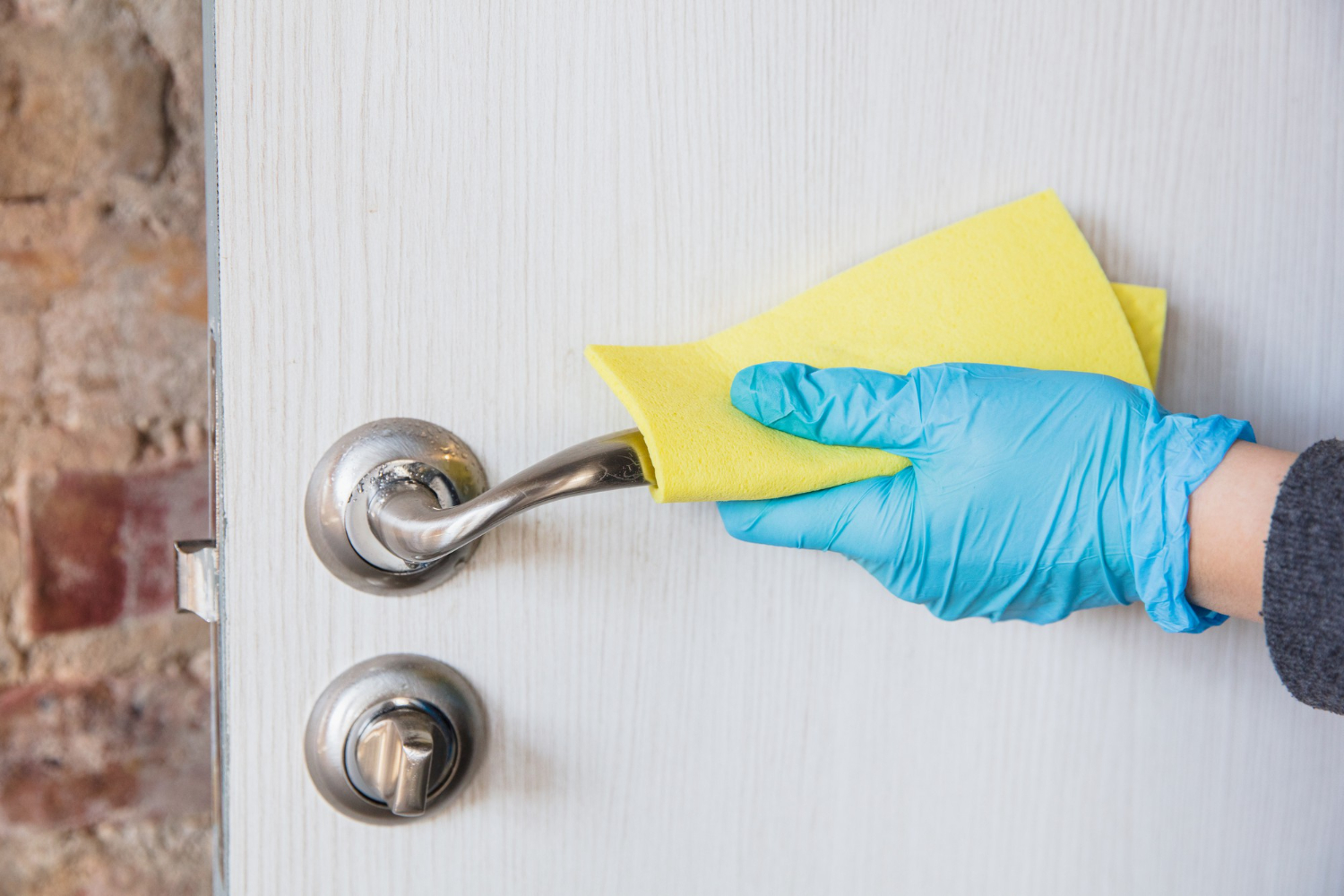You've probably heard that it's important to clean your bathroom and bedroom regularly to keep dust and germs out. But what about your office? It turns out that it's also full of germs. Most people don't think about cleaning their office, and what are the dirtiest things in your office.
ContentFirst of all, what's the difference between cleaning and disinfecting?The dirtiest things in your office: the keyboardWhat things in your office need to be cleaned regularly: the deskThe dirtiest things in your office: doorknobsWhat things in your office need to be cleaned regularly: any common areasThe dirtiest things in your office: the office chair
WomanEL will tell you about them so that you and your colleagues are healthy and work productively.
First of all, what is the difference between cleaning and disinfection?
Whether you work from home or in the office, germs can spread like wildfire. Kelly Reynolds, PhD, says her team has conducted several studies on the topic. “We found that germs spread rapidly in the workplace, contaminating more than 50 percent of co-workers’ hands and shared surfaces within four hours of one person coming to work sick,” she adds.
Fortunately, the spread of office germs can be stopped. A 2019 study found that simple hygiene measures like using disinfectant wipes and washing your hands more frequently can make a huge difference. According to Reynolds, regularly wiping down high-touch surfaces with disinfectant wipes can reduce the bacterial load on office surfaces and reduce the risk of disease transmission by 80 percent.
Many people don’t know the difference between disinfectants and cleaning products. But there’s an important distinction: “Disinfectants kill germs; cleaning products remove dirt,” Reynolds says. “Both have a positive impact on office hygiene.”
But, if you want to reduce the risk of disease transmission in the office, use disinfectants on surfaces that are frequently touched,” she says. Common disinfectants include ingredients such as alcohol, bleach, quaternary ammonium compounds, and hydrogen peroxide.
The dirtiest things in your office: your keyboard
- How often to clean: once a week
When you type, you probably think about terms, not germs. But your keyboard is a haven for bacteria, viruses, and fungi. Because it’s constantly in contact with your fingers, Reynolds says. Your keyboard also collects dead skin, oils, and food particles. All of which allow fungi and bacteria like E. coli and staph to thrive. “While not all strains of these bacteria are dangerous, some can cause stomach flu, diarrhea, and skin infections,” Reynolds adds, especially in people with weakened immune systems.
“It’s a good practice to clean computer keyboards weekly with disinfectant wipes or microfiber cloths dampened with 70 percent alcohol,” Reynolds says. “Check the manufacturers’ instructions for safe use of chemical disinfectants for your specific electronics.”
In addition to disinfecting, “you should vacuum your keyboards,” says cleaning expert Sarah McAllister. “You can also blow away dust or crumbs with an aerosol spray,” McAllister adds.
What items in the office should be cleaned regularly: desk
- How often should be cleaned: daily (if you share a desk). Weekly (as long as it's your own desk).
Desks are essentially your second home, whether you're working face-to-face or remotely. On any given day, you definitely put your lunch, coffee cups, all kinds of papers and objects on the table, which creates ample opportunities for the formation of dust, food particles and bacteria.
If you can't remember the last time you wiped down your desk, don't worry: We're in the same boat. “Desks are rarely cleaned properly,” says Reynolds. “It's best to wipe your table every day if it's shared, or every week if it's your own.”
The dirtiest things in your office: door handles
 It is important to wash the door handle regularly, as it is the most frequently touched surface. Source: freepik.com
It is important to wash the door handle regularly, as it is the most frequently touched surface. Source: freepik.com
- How often to wash: daily
Places like doorknobs are a magnet for germs. Reynolds says they can spread viruses like norovirus (aka stomach flu) and the flu. The problem is that dirt and germs from your hands get on the handles, and when you touch them later, you pick them up again, says McAllister. Plus, most people don’t clean doorknobs often or thoroughly enough.
These are the “hot spots” of the office, especially if they lead to a common area. And they should be disinfected daily,” Reynolds says. “Again, disinfectant wipes are great for this.”
What things in the office need to be washed regularly: any common areas
- How how often should you wash: daily
Whether you work from home or in person, any shared office (or living) space is bound to harbor germs. According to Reynolds’ research, “the break room sink, microwave doorknobs, and shared coffee makers top the list of germ-causing places.”
While most offices hire cleaning crews to clean up after the workday (and cleaning your entire house is already part of your routine), you can still do your part to keep things clean. For example, “the next time you’re waiting for your coffee to brew, wipe down that area with a disinfectant,” Reynolds advises.
The dirtiest things in your office: the office chair
- How often to clean: Once a week (for plastic and metal parts). Once a month (for fabric).
When it comes to germs in the office, your chair probably doesn’t come to mind. But it should. “The arms and armrests are particularly prone to germs,” says Reynolds. “Chairs collect dust, sweat, and skin cells.” Again, all of this is a breeding ground for harmful insects like bacteria.
Try wiping down plastic and metal parts (like armrests) with a disinfectant once a week. Then, “at least once a month, use a vacuum cleaner with a brush attachment for fabric surfaces,” she adds.
Keep your home clean, too! Here, we’ve shared some simple life hacks that will keep you from getting sick.

